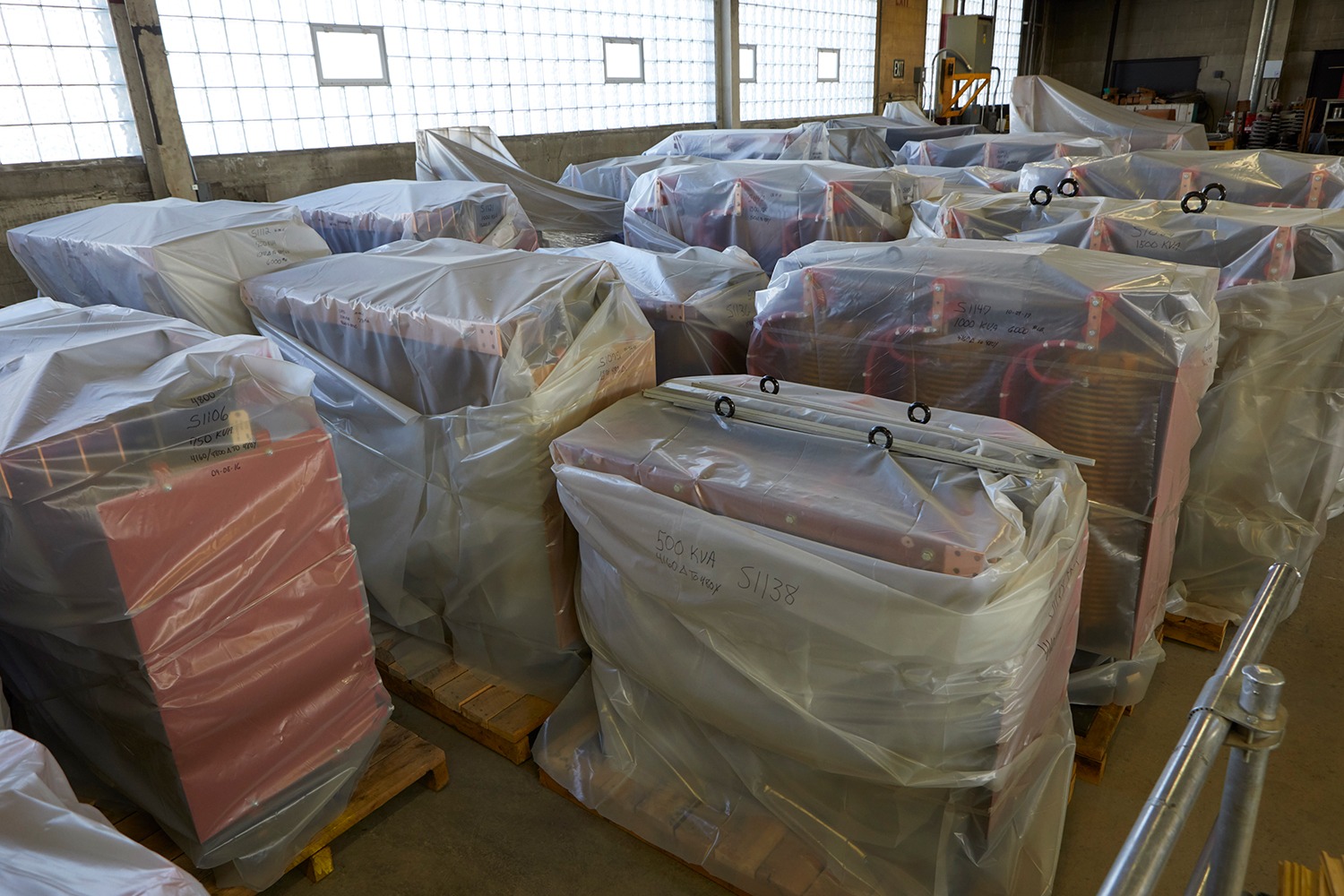
- by Todd Benadum
- November 7, 2019
- Dry Type Transformers, Padmount Transformers, Transformer Build Process, Transformer Failures, Transformer Maintenance, Transformer Repairs, Transformer Services
Transformers are often an afterthought. They don’t experience failures that often – but when they do, the costs can be devastating.
The biggest impact for an unplanned failure is the cost for your facility to not have power. How long can your facility be without power? For some manufacturers, every hour could cost you tens of thousands of dollars in lost business if they’re not up and running.
Other facilities may have emergency measures in place, such as generators, but many of those cost thousands per hour just in fuel costs. Not to mention the cost of a rush job to get a new transformer installed.
Here are questions you need to have the answers to if you’re curious about the health of your transformer. Often, answers to these questions will guide you towards repairing or replacing your transformer. If that is the case, ELSCO is here for you.
1. How Old Is My Transformer?
Age is the biggest contributor to unplanned failures. A quality transformer should last for a while, but if you neglected to invest in a well-built transformer, you could be in for some trouble. Over time, dirt collection and heavy usage breaks your unit’s insulation down. If your transformer is over 20 years old, it’s worth considering its condition so that you’re not surprised by an unplanned failure.
2. Has My Transformer Ever Been Damaged?
If you’ve already had an outage, this indicates that your transformer could have an issue, or was possibly damaged due to immediate power surge when the power coming back on. Additionally, some incidents could occur without your knowing, and could have weakened your transformer in the process.
3. How Clean Is My Transformer?
Dirt, dust, and residue can reduce the life, safety and performance of your transformer. Overtime, that buildup can degrade the insulation and cause your transformer to run hotter than it needs to. This can shorten its life. If your working conditions are unusually dirty or your transformer isn’t in a secure housing, you may want to consider your replacement options soon.
4. How Well Was My Transformer Installed?
A poor install could make your transformer noisy, reduce its performance and longevity. If your transformer has any of the following issues, you may want to take a closer look at the state of your transformer:
– Bus bars are not directly connected to your facilities power unit (compare to flexible braided shunts between bus bars) – The electrical hookups were not properly cleaned after varnishing – Your transformer’s base is sitting directly on concrete or steel, with no rubber feet
5. Have I Increased My Capacity Since Installing My Transformer?
Transformers are built to handle a certain amount of power. If your unit is currently at capacity and you wish to add more power to it, you could push the unit beyond its potential and cause an unplanned failure.
6. When Was The Last Time My Transformer Had Maintenance Done?
Regular check-ups help to ensure that your unit is free of anything inhibiting its longevity, safety and performance. Have you performed any recent tests on the unit to detect any abnormal behavior?
7. What Is My Transformer’s Power Factor?
It might be hard to check your purchase order, but there’s a chance it’s on record somewhere. Typically the power factor won’t be on a purchase order, but should be on a test report. Either one from the manufacturer or one from acceptance testing by a certified electrical testing company. The power factor test measures the dryness of the transformer’s insulation. Although 1% is the legal limit for transformers, most transformers are at or near that level, indicating a lower quality transformer – meaning it has a shorter life and less-efficient performance. ELSCO dry-type transformers are consistently at or below .1 because of their high-quality manufacturing. The lower your score, the greater the safety, longevity and performance.
8. What Is My Plan If My Transformer Fails?
What if your unit were to go down today, unexpectedly? How long could your facility go without power? How much would it cost you each day your power was off? Unplanned failures could really cost you – how much money would you lose every hour if your power went down? Generators are an emergency option, but they are very expensive. Simple preventative measures can ensure that you don’t end up with a surprise failure.
If you can’t answer some of these questions, it’s time to give your transformer a little attention. ELSCO would be happy to discuss your transformer’s health, and help you devise a plan to avoid failure and keep your operation up and running.

